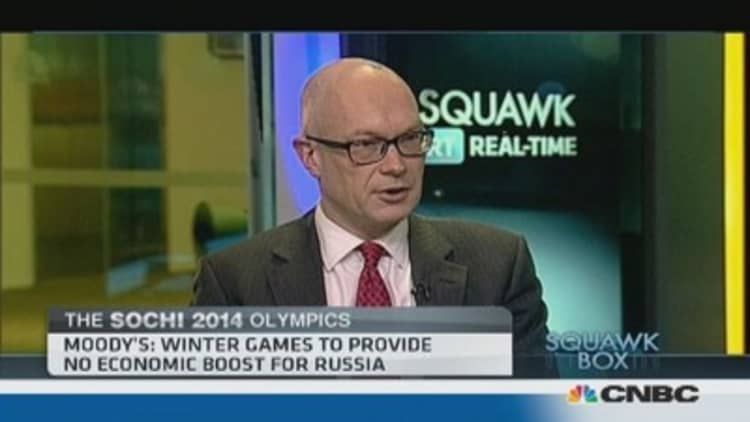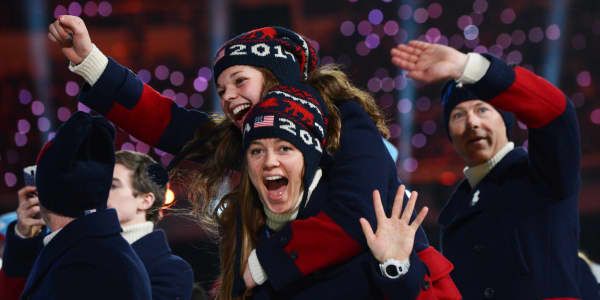As the 2014 Sochi Winter Olympics get underway in Russia, a new report claims socio-economic data can help predict the winners and losers this year.
Predicting the big winners at this year's winter games, "larger, developed countries" dominate the top of the projected medals table, according the report by PwC , with the top three places taken by the U.S., Germany and Russia.
Reseachers at the global professional services firm said they based their conclusions on a number of "key" economic and demographic factors -- from average income levels and population to the number of ski resorts per capita, level of snow coverage and recent "form" at the Winter Olympics.
Whether the country is the host nation and has a "tradition" of winter sport success are also key determinants, according to the report.
(Read more: Why Sochi Olympics isworth $50 billion)
"Our results show that the size of a country's economy is significant in determining their success at the Winter Olympics, with gross domestic product (GDP) per capita and population appearing as significant variables" they noted. "However, being a large economy is not sufficient on its own for a strong performance."

Indeed, although mountainous countries Canada, Austria and Norway followed in the medal ranks in fourth, fifth and sixth place, the economically rich (as the world's second largest economy after the U.S.) but ski resort poor country China ranked seventh in the predictions. Coming in at joint eighth position were economically robust Switzerland and Sweden, countries which also boast a high number of ski resorts.
(Read more: Olympic TV announcers: Go Russia! Booooo USA!)
"Our model indicated that climate and skiing facilities are important factors, with snow coverage and the number of ski resorts per head having a significant and positive impact on medal shares," Broadfield and Zimmern noted. That gives some countries the advantage over bigger rivals.
"Austria and Norway demonstrate that being a smaller economy is not a barrier to success, with a greater estimated medal haul than countries such as China and France," they said.
(Read more: Welcome to Sochi: You're hacked!)
If past experience is anything to go by, their predictions might not be too far off the mark either. For London 2012, PwC correctly predicted the top 10 countries for total medals as well as the correct ranking for six out of the top 10 countries, the report stated.
But while 2014 predictions bode well for host nation Russia's performance – forecast to achieve a total haul of 25 medals, 10 more than their total in the last winter games in 2010 – the same cannot be said for the U.K. team.
Based on the seven factors considered, Team GB is predicted to win a grand total of just two medals this year – just a slight improvement on the single medal won at the two previous winter games.
Perhaps there's still hope for the U.K. team, with PwC adding a caveat to the forecasts: "We are not claiming that our model will forecast medals won with total accuracy. But we can be reasonably confident that certain macroeconomic variables - like GDP or population - or specific factors, like snow coverage, do have predictive power for future performance."
- By CNBC's Holly Ellyatt, follow her on Twitter @HollyEllyatt





